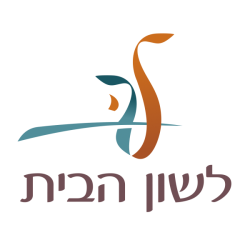The Fifth Commandment
Collection Serge Allouche. Tous droits réservés. Ne pas utiliser à des fins commerciales ©
All rights reserved to Serge Allouche

The Preservation of Jewish Languages and Cultures in memory of Hayyim (Marani) Trabelsy
Collection Serge Allouche. Tous droits réservés. Ne pas utiliser à des fins commerciales ©
All rights reserved to Serge Allouche



General translation:
Sara made Aliya in 1955. They came by ship to the port of Haifa. There, a truck waited for them and took them straight to moshav Yoshivia. In Yoshivia, they received iron beds and straw mattresses, one Primus stove for cooking and one for making hamin (a Jewish stew). They call the hamin- ‘t’fins’.
The living conditions in the moshav at that time were not as good. Sewage ran in the streets. They washed their laundry by hand.
They received a one-bedroom house. There were no infrastructures, and no power in the streets.

General translation:
Julie tells that she originally comes from the house of Atias, and married her husband who is a Bitan. She came to Israel at the age of 15, with her parents, to a Ma՚abara (absorption camp), and from there moved to Shchuna Alef in Be'er Sheva.

General translation:
Julie tells about the folk belief in Ayin Hara (the evil eye). She claims that they did not fear Ayin Hara and did not use expressions like “ḥamsa” (a protection amulet). Only a few used these kinds of expressions.

General translation:
In El Oued (Souf), her mother used to make a living of grinding wheat. When they made Aliya, her mother continued to engage in grinding wheat and barley using a stone grinder, which was a very hard work.
Her father processed copper. He used to make copper coin ornaments. They were poor.
Dalia tells that her mother did not speak to her whilst she was grinding the wheat. Her father did not let her, because he feared sand might fly into the wheat.


General translation:
The mikve in El Oued (Souf) was located in the middle of the orchards and was built as a well with stairs. To reach this remote place, women would walk together. After dipping, they covered the well.

General translation:
At the first day of the Hebrew month, Nisan, they roast and grind wheat into flour. According to her, they had no ‘bsisa’ ceremony like the tradition in Tunisia.
In Passover they cleaned and koshered a special place for baking matzot. People used to arrive to bake the matzot. The matzot are baked in a Tabun oven. The matzot had holes. The women used to knead and roll dough and the men put in the Tabun oven.
At the Seventh day of Passover there was a blind man walking around the houses. They used to dress him in special clothes, sing to him and he would dance and at the end they would give him matzot.

General translation:
Every first day of a month they cooked a dish called “barkoksh”. It is a kind of a very thick couscous, in the size of rice grains. They processed the ground wheat with a sifter to make the barkoksh; ate it with thick soup that contains tomatoes, peppers, fūl and hummus beans. (she was asked if they added butter. She said no.)
Did they light a candle for Rosh Hodesh (first day of the month)?
Probably not. They kept on lighting candles on Shabbat, from Friday morning… they used kerosene burners. They also lit other candles on weekdays.